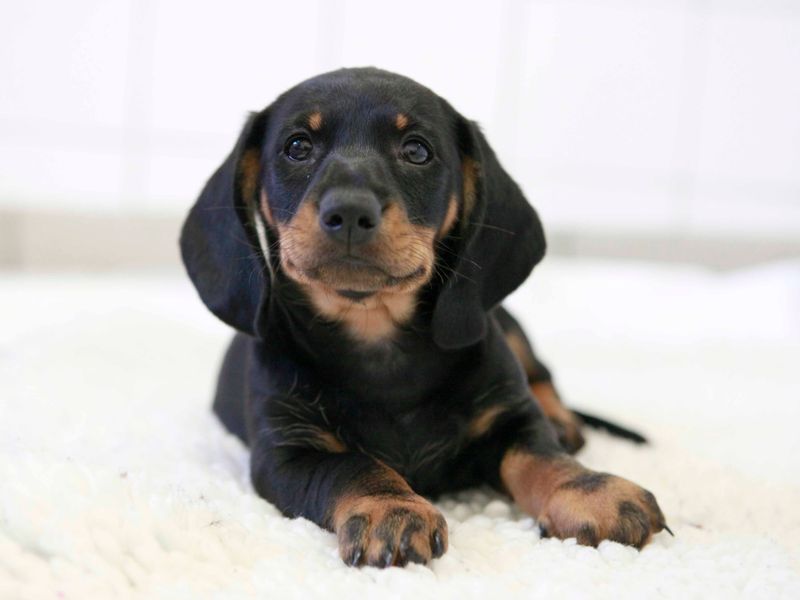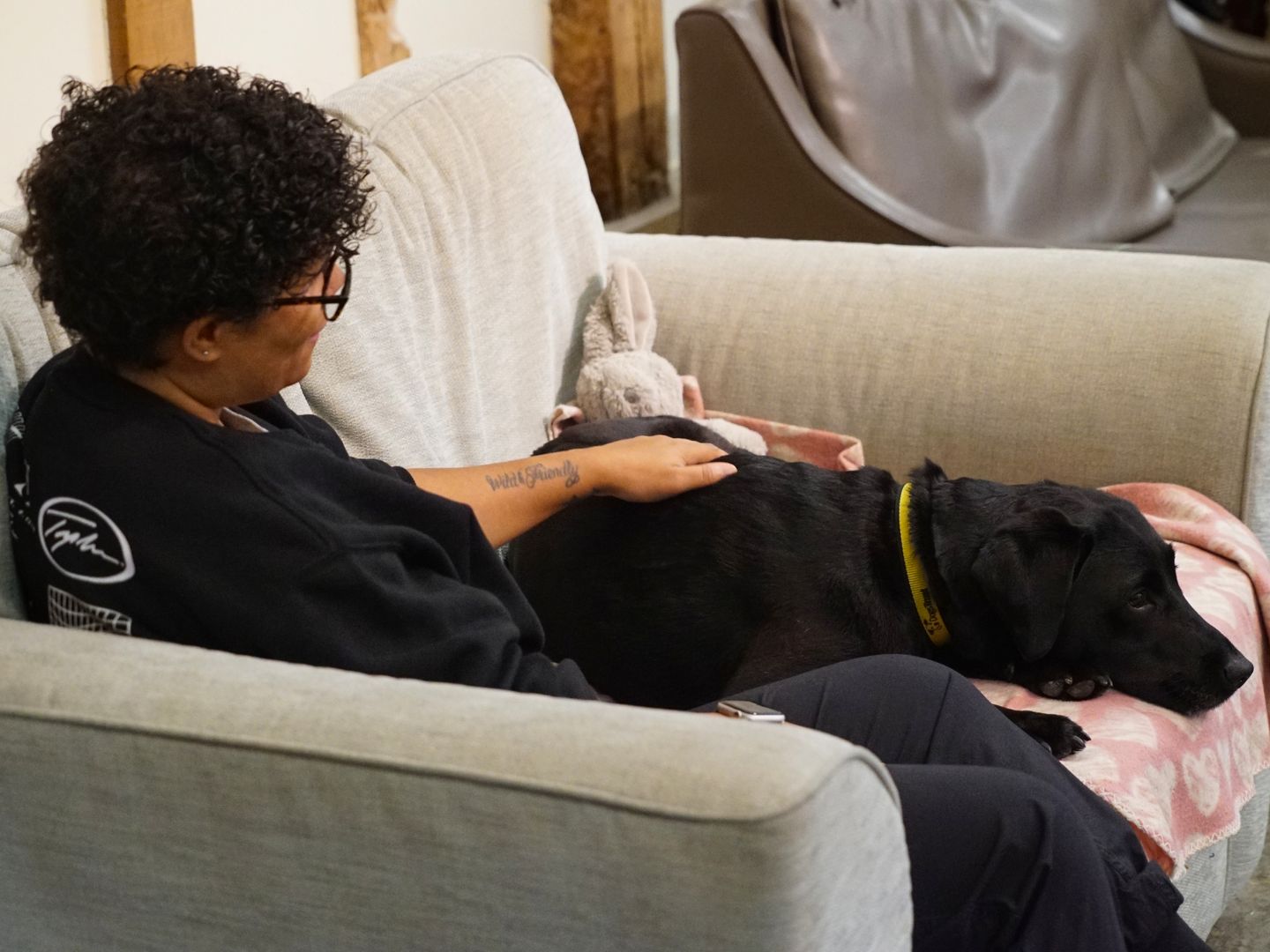Why your puppy might have hiccups and how to help them
Possible reasons behind your puppy’s hiccupping habits, and what you can do to help.

Just like with us humans, it’s normal for your dog to get hiccups from time to time. It’s even more likely if they’re still a young pup. You don’t need us to tell you: a hiccupping puppy is adorable. But why do hiccups happen?
We’re bringing you everything you need to know about your hiccupping hound, and what you can do to help them out.
Why your puppy might get hiccups
Hiccups happen when your puppy’s diaphragm, a muscle underneath their lungs, spasms. The space between their vocal cords closes abruptly, creating that cute puppy squeak.
While there’s no proven scientific reason for hiccups, there are some possible causes thought to be common hiccup triggers.
Age
Dog hiccups happen most often before the age of eight months, though it’s uncertain why this is. Your dog could still get hiccups once they’re an adult, but it’s less common.
Stress
Hiccups can be a stress response if your pup is overstimulated. This may also be a reason for puppies being more prone to hiccups than other dogs. Adult dogs can often remain calm in situations that puppies may find overwhelming.
Eating or drinking too fast
We’ve all been there. Wolfing down a tasty meal too quickly could be behind your pup’s hiccups. It happens when too much air is taken in with each delicious bite, or each gulp of water.
A slow-feeding dog bowl can help encourage your mini-mutt to enjoy their meals at a more relaxed pace.

How long should puppy hiccups last?
Puppy hiccups can stick around for up to an hour or so, but should go away on their own. If your dog’s hiccups won’t go away, or you’re concerned, speak to your vet for more guidance.
Should you be worried if your dog is hiccupping?
Hiccups are completely normal for dogs, and usually nothing to worry about. Keep an eye on your dog, and contact your vet if their hiccups:
- don’t go away after a few hours
- change to a wheezing sound
- seem to cause any breathing problems like irregular or difficult breathing
- seem to cause pain
- are accompanied by coughing, sneezing, or any discharge from the nostrils
- are accompanied by vomiting or regurgitation.
If accompanied by any of the above symptoms, it could indicate an underlying issue. So, it’s best to get them checked out.
Are hiccups painful for puppies?
There’s currently no evidence to suggest that puppies, or adult dogs, find hiccups painful.
What to do when your puppy has hiccups
You don’t usually need to do anything when your puppy has hiccups. Speak to your vet if the hiccups are accompanied by any of the above symptoms.
Otherwise, stay calm and it’ll pass. Changing your behaviour or making a big deal out of hiccups could worry your pup. Tricks that we humans might try to get rid of hiccups can be very dangerous for dogs, so don’t try to intervene.
Does water help puppy hiccups?
Make sure fresh and clean water is available for them, but never force them to drink or go near their bowl. You should always allow them the choice.
The bottom line
While it’s important to stay alert to your pup’s behaviour, a hiccupping dog is usually nothing to worry about. Speak to your vet if you’re concerned, but it should pass on its own in no time.



